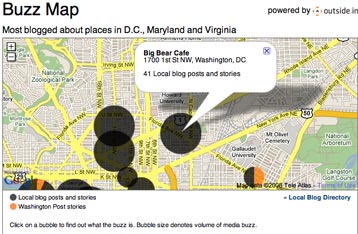In case you hadn’t noticed, Journalism.co.uk was in Sweden last week covering the World Association of Newspapers annual conference and the World Editors Forum.
So no one misses out, here’s a round-up of what went down while we were away:
Guardian: BBC ends ‘licence fee’ plans for international news website
The Beeb has dropped proposals for subscription-based access to BBC.com
WSJ.com: Analysis of hyperlocal news site LoudounExtra.com
Following the departure of Rob Curley, chief architect behind the Washington Post spin-off site, WSJ asks if the site has found its audience a year into the project.
Editor&Publisher: 94 newspapers join Yahoo partnership
A total of 779 newspapers now have access to the search engine’s advertising technology and HotJobs ads.
Daily Mail: Sir Ian Blair advocates use of celebrity news videos as evidence in drug trials
Footage, such as the Sun’s infamous Amy Winehouse video and of Kate Moss snorting a white substance, should be presented to the jury in such cases, Blair has said.
Guardian: BBC’s new plans for personalisation of website
Plans to create a new rating, recommendation and personalisation system across bbc.co.uk will be put to the BBC Trust, according to the corporation’s latest programme policy statement.
Editor’s Weblog: Washington Post launches online publishing company
The Slate Group will feature a host of digital titles including Slate and The Root, with additional launches planned.
Telegraph.co.uk: Update on revamp of community blogging platform MyTelegraph
Communities editor Shane Richmond says a relaunch date will be announced by the end of next week.
Matthew Ingram: Globe and Mail removes pay wall
Number of subscribers was not enough to maintain the wall, says Ingram, who works for the paper. Some readers remain unconvinced, he says, pointing out one comment: “You can’t shut us out for a few years and then expect us to come back just because it’s free.”
MediaShift: Everyblock releases first special report
The hyperlocal data and news site has mapped information from a recent Chicago police bribery investigation as part of its first special report.

